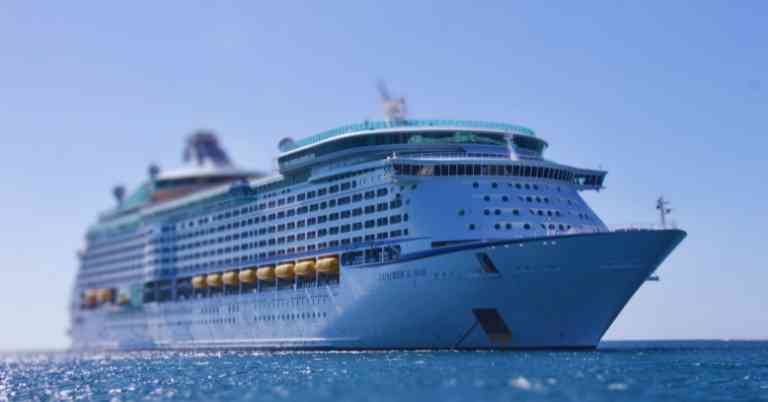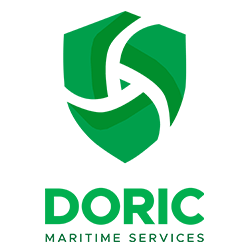Maritime security is a paramount concern in today’s globalized world, where the oceans serve as vital transportation routes for goods and people. With the increasing threats of piracy, terrorism, and other criminal activities, ensuring the safety of vessels and their crew has become a top priority. In this blog post, we will delve into the topic of maritime security and specifically explore the crucial role that armed guards play in safeguarding the seas. We will discuss the services provided by Doric NG, a leading private maritime security service provider operating in Nigeria, the USA, and the UK.
Table of Contents
The Rise of Maritime Threats
In the vast expanse of the seas, safeguarding maritime safety becomes paramount. One effective measure is the deployment of armed security escort vessels. These vigilant vessels serve as a formidable presence, deterring potential threats and ensuring the protection of valuable cargo, crew, and passengers. Equipped with highly trained armed guards, advanced surveillance systems, and sophisticated weaponry, these escort vessels provide a strong defense against piracy, terrorism, and other maritime risks. By maintaining a vigilant watch and swift response capabilities, they contribute significantly to maintaining peace and security on the open waters, instilling confidence in the global maritime industry.
The maritime industry has experienced a concerning rise in security threats, with piracy emerging as a significant concern. In the Gulf of Aden, located between Yemen and Somalia, piracy poses a severe threat to maritime security. Pirate groups take advantage of political instability in Somalia and lack of effective governance in the region to carry out hijackings and armed robberies. These criminal acts not only result in economic losses for shipowners but also endanger the lives of seafarers and disrupt global trade.
Similarly, the Gulf of Guinea, situated along the West African coast, has become a hotspot for piracy, armed robbery, and kidnapping for ransom. Pirates in this region employ sophisticated tactics, targeting a wide range of vessels. Limited law enforcement capabilities, corruption, and inadequate surveillance have posed challenges to combating piracy effectively. The need for comprehensive solutions to ensure safety and security in the Gulf of Guinea remains a pressing concern.
In the Malacca Strait, one of the busiest shipping lanes, piracy and armed robbery pose significant security threats. Criminal syndicates take advantage of the strait’s narrow passages and congested maritime traffic to carry out attacks on vessels. These incidents involve armed robbery, cargo theft, and crew member kidnappings. While collaborative efforts between regional navies, intelligence sharing, and enhanced patrols have contributed to deterring piracy, ongoing vigilance and cooperation are essential to maintain the safety of vessels navigating through this critical waterway.
To address the rising maritime threats, the deployment of armed guards has become crucial. These trained professionals play a vital role in safeguarding ships and their crew members. Armed guards collaborate with shipowners, shipping companies, and relevant authorities to develop tailored security plans for specific voyages. Their presence acts as a strong deterrent to criminals and enhances the overall security posture of the vessel. Through risk assessments, security protocols, and guidance to the crew, armed guards mitigate risks and ensure the safety of everyone on board.
The rise of maritime threats, particularly piracy, poses significant challenges to the safety and security of vessels and seafarers. The Gulf of Aden, the Gulf of Guinea, and the Malacca Strait have emerged as prominent hotspots for criminal activities at sea. Addressing these challenges requires a multi-faceted approach, including improved law enforcement capabilities, international collaboration, and the deployment of trained armed guards. By implementing effective security measures and fostering cooperation, the maritime industry can navigate these threats and maintain the flow of global trade securely.
Understanding Maritime Security Challenges
The maritime industry faces distinct challenges in ensuring security due to the nature of the domain. The vast expanse of open waters creates opportunities for criminals to exploit vulnerabilities. Remote locations, far from immediate law enforcement support, provide an advantage for pirates and other maritime criminals to carry out their illegal activities. These criminals target ships, seeking to hijack them, kidnap crew members for ransom, or steal valuable cargo.
The lack of comprehensive law enforcement coverage in maritime areas poses a significant challenge. The vastness of the oceans makes it difficult for law enforcement agencies to patrol and monitor every ship and stretch of water. This creates opportunities for criminals to operate with relative impunity. Additionally, the delayed response times for law enforcement to reach remote locations further embolden criminals and hinder effective intervention.
To address these challenges, robust security measures are essential. The maritime industry must invest in technologies, training, and collaboration with law enforcement agencies to enhance security at sea. This includes the deployment of armed guards on vessels, implementation of surveillance systems, and sharing of intelligence among stakeholders. By adopting a proactive approach to maritime security, the industry can deter criminals, protect vessels and crew members, and ensure the smooth and safe operation of global maritime trade.
The Role of Armed Guards in Maritime Security
Expertise and Professionalism
Armed guards serve as a crucial line of defense against maritime threats. Companies like Doric NG provide highly trained and experienced security personnel who are well-versed in maritime security protocols, international laws, and industry best practices. These armed guards possess specialized skills in handling firearms, conducting risk assessments, and responding to security incidents.
Deterrence and Protection
The presence of armed guards on board vessels acts as a strong deterrent to criminals. Their training, coupled with their visible presence, sends a clear message that the ship is well-protected and any attempts to carry out illegal activities will be met with immediate and decisive action. This deterrent effect significantly reduces the risk of piracy incidents and enhances the safety of the ship, its cargo, and its crew.
In addition to deterrence, armed guards provide physical protection. They are trained to respond swiftly and effectively in the face of an attack, neutralizing threats and ensuring the safety of everyone on board. Their expertise enables them to navigate high-pressure situations with professionalism and minimize risks to the vessel and its crew.
Risk Assessment and Planning
Armed guards play a vital role in conducting thorough risk assessments. They analyze various factors such as the vessel’s route, geopolitical dynamics, and historical piracy incidents to identify high-risk areas and potential threats. Based on this assessment, armed guards develop comprehensive security plans tailored to the specific voyage, considering factors such as the vessel’s size, cargo, and anticipated challenges.
These plans encompass proactive measures to mitigate risks, such as implementing security protocols, enhancing onboard security systems, and establishing communication channels with relevant authorities. Armed guards work closely with the ship’s crew, providing guidance and training on security procedures to ensure everyone is well-prepared to handle potential threats.
Compliance with International Regulations
Private maritime security companies like Doric NG operate in accordance with international laws and regulations governing the use of armed guards. Compliance ensures that security operations are conducted responsibly, with respect for human rights and adherence to established guidelines. Armed guards are trained in the appropriate use of force and are well-aware of the legal implications surrounding their actions.
By adhering to these regulations, armed guards maintain a high standard of professionalism and contribute to the overall safety and security of maritime operations. They operate within a legal framework that balances the protection of vessels and crew with the preservation of human rights and international norms.
Doric NG: Ensuring Safety in Nigeria, the USA, and the UK
Doric NG is a renowned private maritime security company that specializes in providing armed guards for vessels operating in Nigeria, the USA, and the UK. With their expertise, professionalism, and commitment to excellence, Doric NG has established itself as a trusted partner in ensuring maritime security.
The company’s armed guards undergo rigorous training programs, including specialized maritime security courses, firearms training, and crisis management exercises. This comprehensive training equips them with the necessary skills to handle a wide range of security scenarios effectively.
Doric NG’s armed guards work closely with shipowners, shipping companies, and relevant authorities to develop customized security solutions. They assess the specific risks associated with each voyage and provide tailored security plans to mitigate those risks effectively. Through collaboration and adherence to international standards, Doric NG ensures the safety and security of vessels and crew members within their operational zones.
Conclusion
Maritime security is a critical aspect of global trade and transportation. Armed guards, such as those provided by Doric NG, play an essential role in ensuring the safety and security of vessels at sea. Their expertise, professionalism, and commitment to compliance with international regulations make them an invaluable asset in navigating the complex challenges of maritime security.
As the demand for maritime security continues to grow, it is imperative that private security companies, like Doric NG, continue to innovate and adapt to evolving threats. By employing highly trained armed guards, conducting comprehensive risk assessments, and collaborating with industry stakeholders, Doric NG contributes significantly to a safer and more secure maritime environment.



